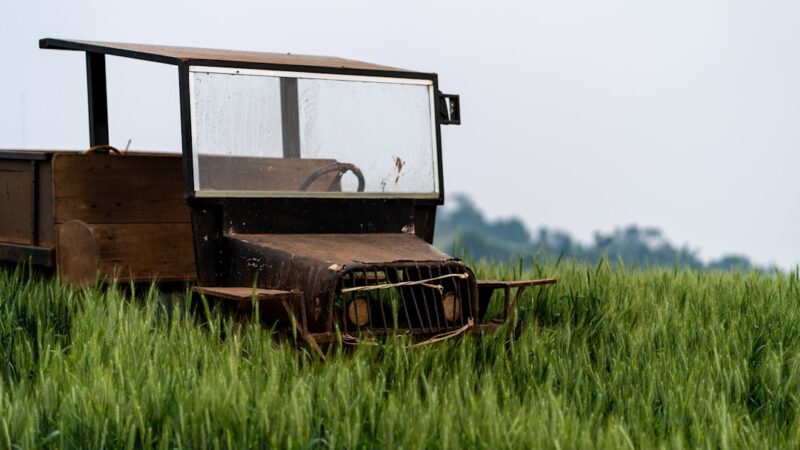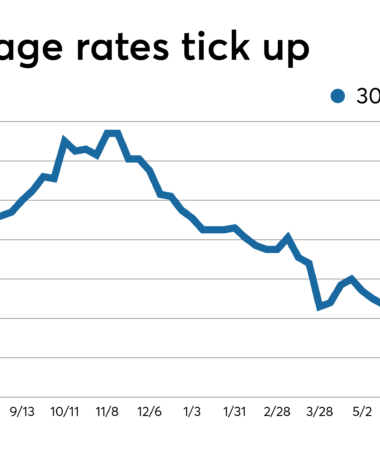Tractor insurance is a specialized form of coverage designed to protect the unique assets and liabilities associated with owning and operating tractors. This type of insurance typically covers a range of incidents, including damage to the tractor itself, liability for injuries or damages caused by the tractor, and even coverage for theft or vandalism. For farmers and agricultural businesses, tractors are not just tools; they are essential machinery that plays a critical role in daily operations.
Therefore, having adequate insurance is not merely a precaution; it is a necessity that safeguards both the equipment and the financial stability of the business. In addition to physical damage and liability coverage, tractor insurance can also encompass various other aspects, such as coverage for attachments and implements that are used in conjunction with the tractor. This can include plows, seeders, and other farming equipment that may be damaged or lost.
Furthermore, many policies offer additional features like roadside assistance, which can be invaluable in rural areas where help may not be readily available. Understanding the full scope of what tractor insurance covers is crucial for any owner, as it ensures that they are adequately protected against potential risks that could disrupt their operations.
Key Takeaways
- Tractor insurance covers damage to the tractor, liability for injuries or property damage, and protection for equipment and attachments.
- Factors affecting tractor insurance prices include the tractor’s value, intended use, location, and the driver’s experience and history.
- Types of tractor insurance coverage available include liability, collision, comprehensive, and uninsured/underinsured motorist coverage.
- When comparing tractor insurance quotes, consider the coverage limits, deductibles, and any additional benefits or discounts offered by the insurer.
- Tips for lowering your tractor insurance premium include bundling policies, maintaining a good driving record, and investing in safety and security measures for your tractor.
Factors Affecting Tractor Insurance Prices
The cost of tractor insurance can vary significantly based on several factors that insurers take into account when determining premiums. One of the primary considerations is the value of the tractor itself. More expensive models or those equipped with advanced technology may incur higher premiums due to the increased risk associated with potential repairs or replacements.
Additionally, the age of the tractor plays a role; newer models may be more costly to insure than older ones, which might have depreciated in value. Another critical factor influencing insurance prices is the intended use of the tractor. Tractors used for commercial purposes, such as farming or landscaping, may attract higher premiums compared to those used for personal or recreational purposes.
Insurers also consider the operating environment; tractors used in high-risk areas or those that are frequently exposed to harsh weather conditions may face increased rates. Furthermore, the owner’s claims history can impact pricing; individuals with a history of frequent claims may be viewed as higher risk, leading to elevated premiums.
Types of Tractor Insurance Coverage Available

When it comes to tractor insurance, there are several types of coverage options available to meet the diverse needs of owners. Liability coverage is one of the most fundamental types, protecting against claims arising from injuries or damages caused by the tractor. This coverage is essential for anyone who operates a tractor in public spaces or on shared property, as it provides financial protection against lawsuits and medical expenses.
In addition to liability coverage, many policies offer comprehensive coverage that protects against a wide range of risks, including theft, vandalism, and natural disasters. This type of coverage is particularly important for those who store their tractors outside or in unsecured locations. Collision coverage is another option that can be added to a policy; it covers damages resulting from accidents involving other vehicles or objects.
For those who use their tractors for specific tasks, such as farming or construction, specialized endorsements can be added to tailor the policy to their unique needs.
Comparing Tractor Insurance Quotes: How to Find the Best Price
| Insurance Company | Policy Coverage | Annual Premium | Deductible |
|---|---|---|---|
| ABC Insurance | Comprehensive | 800 | 500 |
| XYZ Insurance | Basic | 600 | 1000 |
| 123 Insurance | Full Coverage | 1000 | 750 |
Finding the best price for tractor insurance requires careful comparison of quotes from multiple insurers. The first step in this process is to gather quotes from various companies, which can often be done online through insurance comparison websites or by contacting agents directly. When obtaining quotes, it is essential to provide consistent information about the tractor’s make, model, age, and intended use to ensure that comparisons are accurate.
Once you have collected several quotes, it is crucial to analyze not just the price but also the coverage details included in each policy. Some insurers may offer lower premiums but provide less comprehensive coverage or higher deductibles. It is also wise to consider customer reviews and ratings for each insurance provider, as this can give insight into their claims process and customer service quality.
By weighing these factors alongside price, you can make a more informed decision about which policy offers the best value for your specific needs.
Tips for Lowering Your Tractor Insurance Premium
Reducing tractor insurance premiums can be achieved through several strategies that focus on risk management and policy optimization. One effective approach is to increase your deductible; by opting for a higher deductible amount, you can lower your premium significantly. However, it is essential to ensure that you can afford the deductible in case of a claim.
Another way to lower premiums is by bundling insurance policies with the same provider. Many insurers offer discounts for customers who combine their tractor insurance with other types of coverage, such as home or auto insurance. Additionally, maintaining a clean driving record and minimizing claims can lead to lower rates over time.
Some insurers also provide discounts for safety features installed on tractors or for completing safety training programs.
The Importance of Adequate Tractor Insurance for Your Farm or Business

Adequate tractor insurance is vital for any farm or business that relies on these machines for daily operations. Without proper coverage, owners risk facing significant financial losses in the event of an accident or equipment failure. For instance, if a tractor were to be involved in an accident causing injury to a third party or damage to property, liability coverage would protect the owner from potentially crippling legal expenses and settlements.
Moreover, tractors are often substantial investments; without adequate insurance, owners could face devastating financial repercussions if their equipment were damaged or stolen. In agricultural settings where tractors are essential for planting and harvesting crops, downtime due to uninsured losses can lead to missed deadlines and reduced yields. Therefore, having comprehensive tractor insurance not only protects physical assets but also ensures business continuity and financial stability.
Common Mistakes to Avoid When Purchasing Tractor Insurance
When purchasing tractor insurance, several common pitfalls can lead to inadequate coverage or unnecessary expenses. One frequent mistake is underestimating the value of the tractor and its attachments when selecting coverage limits. Owners may opt for lower coverage limits to save on premiums but could find themselves underinsured in the event of a loss.
It is crucial to accurately assess the total value of all equipment involved. Another common error is failing to read the fine print of insurance policies thoroughly. Many individuals overlook specific exclusions or limitations that could affect their claims in the future.
For example, some policies may not cover certain types of damage or may have restrictions based on how the tractor is used. Additionally, neglecting to update insurance policies after acquiring new equipment or making significant changes in operations can lead to gaps in coverage.
The Benefits of Investing in Comprehensive Tractor Insurance
Investing in comprehensive tractor insurance offers numerous benefits that extend beyond mere financial protection. One significant advantage is peace of mind; knowing that your equipment is covered against various risks allows owners to focus on their operations without constant worry about potential losses. This peace of mind can enhance productivity and overall business performance.
Furthermore, comprehensive coverage often includes additional services such as roadside assistance and rental reimbursement in case your tractor needs repairs. These features can be invaluable during critical farming seasons when time is of the essence. Additionally, having robust insurance can improve relationships with lenders and investors who may require proof of adequate coverage before financing equipment purchases or business expansions.
Ultimately, comprehensive tractor insurance serves as a foundational element in building a resilient and sustainable agricultural operation or business venture.
FAQs
What factors affect the price of tractor insurance?
Factors that can affect the price of tractor insurance include the age and condition of the tractor, the type of coverage selected, the location where the tractor will be used, the driver’s experience and driving record, and the insurance company’s underwriting criteria.
What type of coverage is available for tractor insurance?
Tractor insurance typically offers coverage for liability, physical damage, medical payments, and uninsured/underinsured motorists. Additional coverage options may include roadside assistance, equipment breakdown, and coverage for attachments and accessories.
Are there any discounts available for tractor insurance?
Some insurance companies may offer discounts for factors such as multiple policies with the same insurer, safety features on the tractor, low annual mileage, and completion of a tractor safety course. It’s best to check with individual insurance companies for specific discount options.
Do insurance prices vary by location?
Yes, insurance prices for tractors can vary by location due to factors such as local weather conditions, crime rates, and state insurance regulations. It’s important to obtain quotes from insurance companies that are familiar with the specific risks in the location where the tractor will be used.
Can I customize my tractor insurance policy?
Yes, many insurance companies offer the option to customize tractor insurance policies to fit the specific needs of the policyholder. This may include selecting different coverage limits, adding optional coverages, and adjusting deductibles to create a policy that meets individual requirements.








